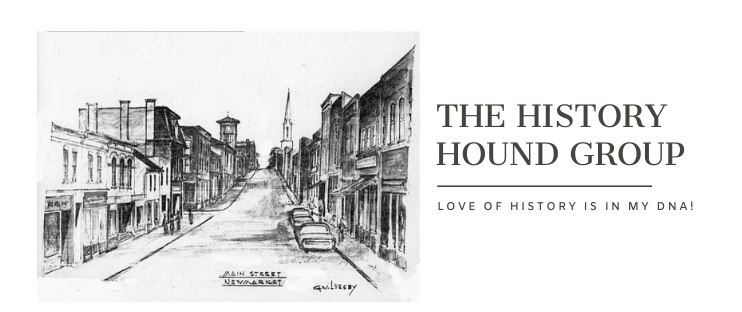
PROPOSAL COMMISSIONING NEWMARKET ORAL HISTORY PROJECT
Oral history is a record of information, captured electronically, as the result of a planned interview. Its purpose is to create a record where none exists or to supplement existing records for future research. Oral history is a method of recording spoken language, eyewitness accounts and insights into society and its changing values and attitudes. It also gives a voice to those previously denied the chance to contribute to the recording of history.
Introduction
This guide has been produced for the use of both the commissioning body (ARCH) and the participating oral historians. For convenience these are referred to respectively as the ‘Town’ and the ‘Participants’.
These Oral Histories have been commissioned to undertake work for a variety of users including but not limited to the local historical society, Newmarket Archives, The Arch committee and the Town of Newmarket’s ‘Cultural Mapping project.’
Depending on the nature of the work, this may involve a process of determination of the task, preparation of an outlining brief, preparation and submission of a proposal to the Town’s cultural mapping committee, selection of a working committee of interviewers and production staff, and finally an oversight group charged with managing the commission.
The following guide attempts only to list all points connected with commissioning and conducting of this said oral history project. For details of technique and practice reference a separate Oral History Handbook will be available.
Guidelines for writing and publishing, whether for print, audio, video or multimedia, are not addressed at length in this guide.
Commissioning Oral History
The Town and the participants should be bound by the Oral History Handbook.
Principals should have a reasonable understanding and appreciation of oral history: what it is, its various applications, the variety of skills that might be involved and the activities that go to make up a particular commission.
Like many activities involving people, particularly those requiring emotional effort, oral history cannot be rushed. It is not easy to estimate the length of an interview or the quality of an individual response. The focus of a project may indicate the average length of an interview. In some cases approximately half an hour of recording may suffice; however, the full recording for a ‘memory biography’ will usually be longer.
Each interview requires preparation for planning, background research and the framing questions.
The Brief
A written brief should be prepared for each element of the commission. In developing the brief, there should be clear objectives, an idea of the cost and time available.
The brief should be developed to the fullest extent possible giving consideration to the following points:
Project Administration
• Purpose of the project (including whether for public or private archives, or ultimate publication, whether in-house or for general distribution).
• Description of the project including:
o Scope
o Subject matter
o Themes or subjects to be explored.
• Size of the project e.g. anticipated number and duration of interviews.
• Desired degree of detail for individual interviews, taking into account the breadth and/or the particular focus of the project.
• Time frame for completion and:
o Procedure in the event of delay or likelihood of delay to completion.
o Responsibility of the Participant to notify the Committee of potential delays.
• Procedure in the event that the scope of the project is changed – whether enlarged, reduced or terminated.
• Equipment to be used and/or technical standards to be attained, e.g. clarity of recording; recording to be of broadcast quality.
• Selection of prospective interviewees.
• Manner of contact with prospective interviewees.
I believe that the project can be divided into the following categories. I have outlined the components of each of these categories (pre-interview, interview, and post-interview) below:
The Pre-Interview Stage
Determine who should be interviewed:
We will need to establish a small committee/panel charged with the responsibility to vet the existing list of potential interviewees and to coordinate the addition of other qualified interviewees. They also would be charged with setting the priorities for the actual interview schedule.
Legal/ethical issues
We will require the Town to provide an agreement/waive which would be used prior to the interview outlining both the participants and the Town’s obligations/responsibilities.
Establishment of the Interview Teams / Units
I believe that is would be prudent to establish four to five interview teams made up of an interviewer and a camera person. Once selected, we would then provide training as a unit on how we wish the interviews to be conducted, providing each team with an interview guide for reference. Perhaps a vetting process could be put in place to assure continuity of approach. As stated at the coordinating meeting, candidates for these teams may come from the Town, schools, or existing interest groups.
Research
We will require people to conduct research, allowing us to focus our interview time with the interviewee on areas of most interest.
Technology
As with all endeavors of this type, we shall require a technology committee to oversee our interview equipment. Ultimately we shall need their expertise in the post-interview stage to edit and provide production skills to the raw data.
Publishing / Publicizing
A key element will be the publicizing of this project, getting the public on board. Someone who can be a lea son with the public and the coordinating committee to facilitate the public face of this project.
Interview Stage
We shall need people for the following areas:
o Conducting the interview.
o Interview logging.
o Transcription.
o Corrections to transcription.
o Interview summary (where attention may be drawn to any possibly sensitive material).
o Technical backup
• Statement of the Town’s standard requirements:
o Professional safeguards required such as professional indemnity insurance?
o Interview identification questions.
o Access/permission/copyright release form.
o Format of recording labels, logs and transcriptions.
o Master recordings to be copied immediately and stored.
o Custody of the recordings during the project.
o Logging and transcription to be done from copies.
o Copy of recording for interviewee if required.
o Attention to be drawn to any possibly sensitive material.
Post Production Stage
During post production, we shall need:
o Staff charged with preparation for publication, whether print, audio, video or multimedia.
o Entry on to a database.
After the interviews are complete we shall need people to handle:
• Numbers of duplicate copies of recordings and documents
• Manner in which the recordings and document copies to be delivered
• Letter of thanks to the interviewee.
• Reimbursement of agreed expenses
• Acknowledgement of the Town, the Participants and interviewees in final product and/or in any published work.
A post project report must be presented to all of the parties involved to document that we have fulfilled the mandate of the project.
Richard MacLeod
Oral History Project
Newmarket History Hound

